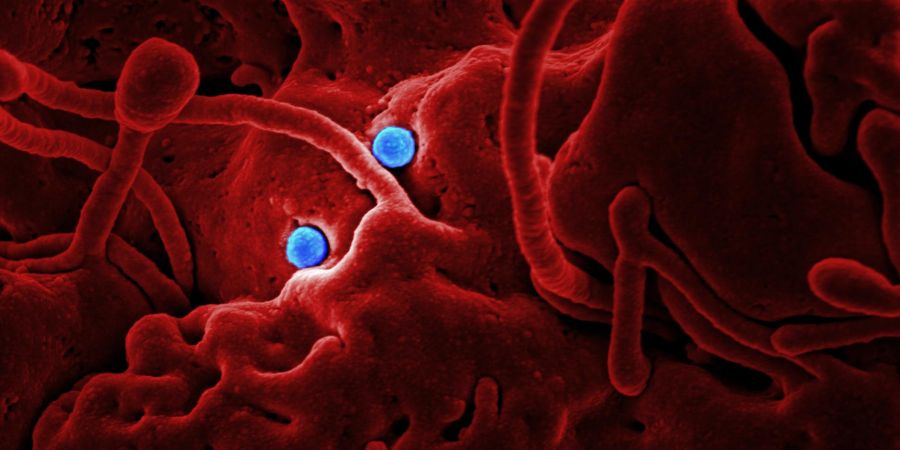

Thirteen bacterial species among the billions of microorganisms that live in your gut have been linked to depression. In two research that were released on December 6 in the journal Nature Communications, depression-related bacteria were identified, along with a potential explanation for how these bacteria may be encouraging depressive episodes.
One of the main factors contributing to disability worldwide is depression. Adults with the illness make up about 5% of the population. A depressive episode can have a considerable negative impact on your life if untreated, ranging from persistent hopelessness to losing interest in daily activities. Understanding how these microorganisms affect our mental health could help develop gut-based treatments for the disorder.
Certain gut microbes can be a reason for chemical imbalance in the brain
In one of the studies, Researchers in the Netherlands looked at the microbiome composition of 1,539 people. In an email to PopSci, study coauthor and senior research scientist Robert Kraaij of Erasmus Medical Center Rotterdam in the Netherlands said, "Our biggest surprise was the strength of the association between gut bacteria and sadness." People with higher concentrations of Sellimonas, Eggerthella, Lachnoclostridium, and Hungatella, four of the 13 microbial taxa associated with depression, reported more depressed symptoms.
The levels of the 13 microorganism species—which aid in the production of the chemical messengers glutamate, butyrate, serotonin, and gamma amino butyric acid (GABA)—are frequently changed during depressive episodes. According to Najaf Amin, a senior researcher at Oxford University and a key study author, the results from this study may help identify those who are most at risk for developing depression.
Amin intends to compare the four chemical messenger levels in the blood of those with and without depression in the future. By doing this, it might be possible to gain a clearer understanding of how gut microbes affect a person's brain chemistry and how the brain controls mood.
Differences in the gut microbiomes of depressed patients among ethnic groups
In the second investigation, faecal samples from 3,211 residents of urban Amsterdam were examined. Six different ethnic groups made up the participants: Dutch, South Asian Surinamese, African Surinamese, Ghanaian, Turkish, and Moroccan. The microbiome assessments revealed changes in bacterial species from the Christensenellaceae, Lachnospiraceae, and Ruminococcaceae families that are linked to depressive symptoms. However, one intriguing finding was that not all depressed people had the same proportions of each microbial species. Ethnic differences account for between 18 and 29 percent of the variations in depression-related bacteria.
Although he was not involved in either study, Harvey Hamilton Allen Jr., head gastroenterologist at Mohawk Valley Endoscopy Center at St. Luke's Hospital, calls it “crucial research with interesting data on gut-brain [interactions], a booming area of science and medicine currently.”
What we understood about the role of the gut in depression.
The fact that there doesn't seem to be a single cause of depression is one of the reasons it's challenging to cure. Previous studies have connected depressive symptoms to upsetting or traumatic life experiences, while others have seen depression develop following long-term substance usage. Given that those with a family history of depression are three times more likely to develop the condition themselves, genetic factors may also be at play. Another factor that may be involved is the microbiome in the gut.
The fact that approximately 95% of serotonin—often referred to as the "happy hormone" for its ability to regulate mood—is produced by gut bacteria is an important indicator that the gut likely plays a role in depression. Two frequently prescribed antidepressants, Paxil and Zoloft, prevent the body from reabsorbing serotonin to prevent the hormone's levels from dropping too low.
Using the microbiota to treat depression.
The way we practise medicine, particularly how we treat depression, may be completely altered if we have a thorough understanding of the gut microbiota. According to Kraaij, if specific bacteria are a contributing factor to depression, we can develop therapies to modulate these germs.
Fecal transplants are one such strategy. While such a procedure might appear ripe for bacterial illnesses, it might aid those who are unable to develop healthy gut flora in promoting them (there have been reported deaths from faecal transplants among immunocompromised people). The standard of treatment for treating Clostridioides difficile infections already involves transferring the faeces of someone with a healthy gut microbiota to someone with an unfavourable stomach. The technique replenishes the lower intestines with beneficial microorganisms. The FDA only just this week, on December 2, approved the first challenging intestinal infection transplant using pharmaceutical-grade faeces.
Additionally, there is mounting proof that faecal transplants may be able to treat depression. Two patients with serious depressive illness received faeces transplantation in addition to their ongoing treatment in a tiny case study that was reported in February 2022. Four weeks after the treatment, both individuals displayed a decrease in depressive-like behaviours. One of the patients also showed improvement in other GI issues and their depressive symptoms for up to eight weeks after treatment.
Hamilton Allen Jr. claims that gut microorganisms are just one of numerous factors that have been related to depression. Scientists cannot conclusively state that a gut imbalance is the major cause of sadness in the absence of an experiment that might change the microbiota to compare how people fared with and without these microorganisms. Nevertheless, he asserts that "this is unquestionably one of the emerging therapy methods, and as we understand more about this organ, we will see more research going into treating the microbiota."
